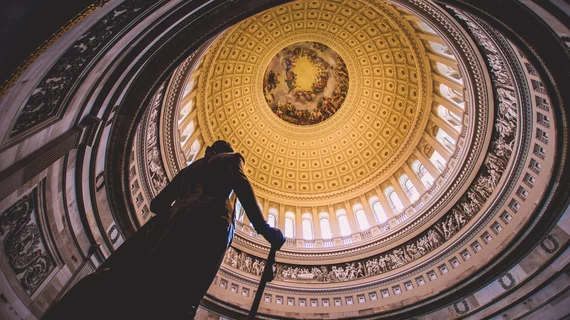Repeal of controversial $20B medical device tax may be imminent
A repeal of the controversial medical device tax that some in the radiology business have called “disastrous” could be coming down the pipeline soon.
Lawmakers on Capitol Hill have reportedly agreed to kill the 2.3% levy on imaging machines and other devices as part of an end-of-the-year spending bill. The levy was first proposed in 2009 under the Affordable Care Act, but it has been suspended intermittently in recent years, with opponents claiming it has led to thousands of lost jobs and abandoned research projects.
Foes of the tax applauded the proposed spending bill on Tuesday, Dec. 17, urging lawmakers to “cross the finish line.”
“On behalf of a wide coalition of stakeholders, we appreciate our legislative champions for coming together in a bipartisan fashion to take action on this important issue,” said Patrick Hope, executive director of the Medical Imaging and Technology Alliance, which wrote a letter to congressional leaders in September requesting the revocation. “Permanent repeal of this tax will finally lift medical innovators, manufacturers, and patients out of this uncertainty they have grappled with for over eight years.”
That letter was signed by hundreds of other industry stakeholders, including the American College of Radiology, who claimed that 21,000 jobs would disappear if politicians failed to kill the tax. One outdated estimate pegged the tax’s total at about $24 billion over 10 years.
In a separate statement, Advanced Medical Technology Association CEO Scott Whitaker called news of the repeal “a great day for American patients.” The Wall Street Journal also lambasted the levy last week in its own editorial, urging lawmakers to “kill the tax permanently.”
Congress is expected to take up the spending package later this week, according to published reports.

